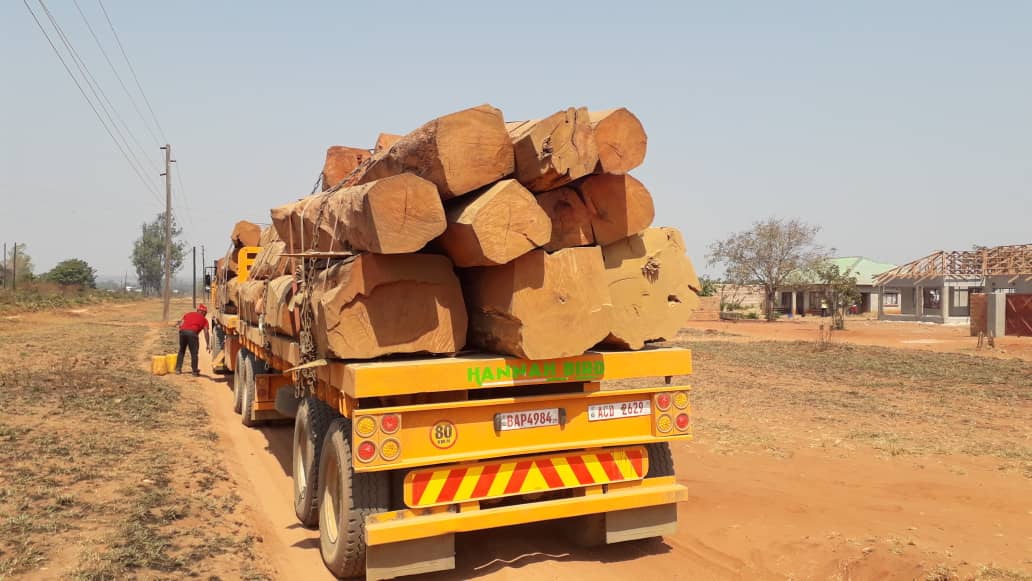We are often told that Zambia is a country blessed with natural resources that few places in the world can compete with. Be it the Mosi-oa-Tunya (Victoria Falls), the Zambezi and Kafue River or the Luangwa Valley, the list of Zambia’s natural wonders appears to be endless. Avid nature lovers will agree – Zambia is a country rich in natural beauty.
Added to this abundant natural beauty is the indigenous hardwoods that are found throughout Zambia. Zambia is home to numerous exotic timber tree species, most famously the mukula. The most common hardwoods that grow in the region are African rosewood, mukwa and Rhodesian teak. They grow in sub-Saharan countries such as Angola, the Democratic Republic of the Congo, Tanzania, Zambia and Zimbabwe.
The Zambian timber industry recently made international headlines with stories revolving around the lucrative trade and a recent report drew attention to the value of the industry. Unfortunately local Zambian businesses have not been the major beneficiaries of the trade. What has become apparent to many is how valuable the woods that are found in our forests are – many of which are traditionally held in the custody of chieftainships, often in remote parts of the country.
Developing the local timber industry comes with challenges. One of these challenges is engaging local communities and cooperating partners to work together and ensuring all benefit from the timber trade. Income generated should have a lasting impact on the communities and not only benefit other players in the supply chain (such as middle men and executives) that are far removed from the habitats where the hardwoods are found in the comfort of cities within Zambia, Africa and further afield. Promoting much needed economic activity and preserving our ecosystems is yet another challenge. We must ensure pursuit of profits doesn’t lead to the destruction of our forests or people’s way of life.
There has been an increase in wood processing and sawmills within Zambia but it is largely driven by foreign entities. Government agencies such as Zambia Forestry and Forest Industries Corporation (ZAFFICO) and other cooperating partners have tried aiding the sector with various interventions that aim to support its growth – that is not to say that the slew of challenges that are faced by the local sector have been completely overcome. Local sawmills and timber merchants face countless challenges; more could be done in support of local small to medium scale enterprises that in turn provide positive multiplication for the communities they serve and the economy as a whole.
The starting point in the chain is the forests that house the timber, then the saw mill operators, followed by the buyers of the material that in turn provide the artisans and carpenters the material (the hard and soft woods) to do their work and finally, the furniture stores – that then sell to us – the consumers. When one looks at this chain, each link is vital in ensuring that there is value addition in which costs are recovered and profit made ideally without proving detrimental to any participant in this chain.
Sawmill operators such Copperbelt Forestry Company, Lufwanyama Enterprises Limited and Rainlands Timber are established names on the Copperbelt with a long history of working traditionally with the mining sector that have provided dunnage, pallets, shuttering and other essential offcuts used in building.
Recently we have seen some growth in other areas of value addition which are not only looking at the local market but also markets within the region and further afield that produce furniture, as well as arts and crafts. Some notable local manufacturers are Kubu Crafts, Kroupwood, Sikale Wood Manufacturers and Mupapa Wood. All of these local companies showcase the best of arts, crafts, and gifts and timber works within Zambia.
Companies such as Zambezi Hardwood offer handmade hardwood furniture and gifts, as well as rough-cut African lumber in its natural state. All of the wood is grown sustainably in Africa and imported, either in its raw form or as furniture manufactured in their own workshop in Lusaka and exported to the United States. Zambezi Hardwood pride themselves as woodworkers with decades of experience and are passionate about wood. All of their pieces are unique, and are thoughtfully designed to show off the beauty and quality of the material.
There has been a marked increase in local craft carpentry stores throughout the Copperbelt and Lusaka. Vocational training and apprenticeship courses have the ability to transform people’s lives as they learn a skill that they can use throughout their working life. One hopes that as local demand increases for quality goods more Zambians and visitors to Zambia will buy and support locally produced and affordable timber products. Zambia is rich in natural resources – where we are lacking is in the area of value addition and ensuring locals, including those living in the areas where the resources are extracted, benefit from the timber trade.
The Zambian timber industry and the related arts and crafts industry have immense potential but certain challenges prevail. These include ensuring that local communities benefit economically and that the pursuit of profits doesn’t lead to environmental destruction.








